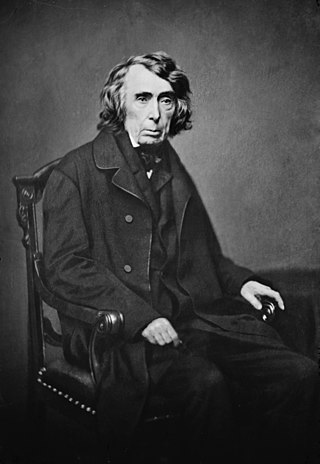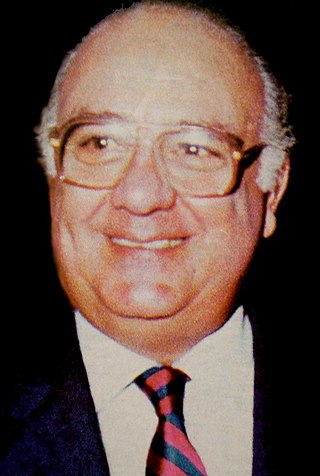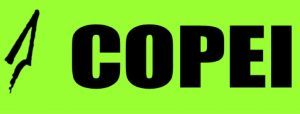
The politics of Ecuador are multi-party. The central government polity is a quadrennially elected presidential, unicameral representative democracy. The President of Ecuador is head of state and head of the army on a multi-party system, and leads a cabinet with further executive power. Legislative power is not limited to the National Assembly, as it may to a lesser degree be exercised by the executive which consists of the President convening an appointed executive cabinet. Subsequent acts of the National Assembly are supreme over Executive Orders where sufficient votes have been cast by the legislators. The judiciary is independent of the executive and the legislature. Ecuador is also considered a constitutional republic.

Impeachment is a process by which a legislative body or other legally constituted tribunal initiates charges against a public official for misconduct. It may be understood as a unique process involving both political and legal elements.

The politics of Venezuela occurs in a framework explained in Government of Venezuela.

Ex parte Merryman, 17 F. Cas. 144 (No. 9487), was a controversial U.S. federal court case that arose out of the American Civil War. It was a test of the authority of the President to suspend "the privilege of the writ of habeas corpus" under the Constitution's Suspension Clause, when Congress was in recess and therefore unavailable to do so itself. More generally, the case raised questions about the ability of the executive branch to decline to enforce judicial decisions when the executive believes them to be erroneous and harmful to its own legal powers.

Rafael Antonio Caldera Rodríguez, twice elected the president of Venezuela, served for two five-year terms, becoming the longest serving democratically elected leader to govern the country in the twentieth century. His first term marked the first peaceful transfer of power to the opposition in Venezuela's history.

The Chamber of Representatives is the lower house of the Congress of Colombia. It has 172 members elected to four-year terms.

Jaime Ramón Lusinchi was the president of Venezuela from 1984 to 1989. His term was characterized by an economic crisis, growth of the external debt, populist policies, currency depreciation, inflation and corruption that exacerbated the crisis of the political system established in 1958.

Elections in Venezuela are held at a national level for the President of Venezuela as head of state and head of government, and for a unicameral legislature. The President of Venezuela is elected for a six-year term by direct election plurality voting, and is eligible for re-election. The National Assembly (Asamblea Nacional) has 165 members (diputados), elected for five-year terms using a mixed-member majoritarian representation system. Elections also take place at state level and local level.

The Constitution of the Bolivarian Republic of Venezuela is the current and twenty-sixth constitution of Venezuela. It was drafted in mid-1999 by a constituent assembly that had been created by popular referendum. Adopted in December 1999, it replaced the 1961 Constitution, the longest-serving in Venezuelan history. It was primarily promoted by then President of Venezuela Hugo Chávez and thereafter received strong backing from diverse sectors, including figures involved in promulgating the 1961 constitution such as Luis Miquilena and Carlos Andrés Pérez. Chávez and his followers (chavistas) refer to the 1999 document as the "Constitución Bolivariana" because they assert that it is ideologically descended from the thinking and political philosophy of Simón Bolívar and Bolivarianism. Since the creation of the Constituent National Assembly in August 2017, the Bolivarian government has declared the 1999 constitution suspended until a new constitution is created.
The judicial system of Ukraine is outlined in the 1996 Constitution of Ukraine. Before this there was no notion of judicial review nor any Supreme court since 1991's Ukrainian independence when it started being slowly restructured.

The Political Constitution of Colombia of 1991, is the Constitution of the Republic of Colombia. It was promulgated in Constitutional Gazette number 114 on Thursday, July 4, 1991, and is also known as the Constitution of Human Rights. It replaced the Political Constitution of 1886 and was issued during the presidency of the liberal César Gaviria, with ideas from the also liberal Luis Carlos Galán.

COPEI, also referred to as the Social Christian Party or Green Party, is a Christian democratic party in Venezuela. The acronym stands for Comité de Organización Política Electoral Independiente, but this provisional full name has fallen out of use. The party was influential during the twentieth century as a signatory of the Puntofijo Pact and influenced many politicians throughout Latin America at its peak.

The Constitutional Court of the Kingdom of Thailand is an independent Thai court created by the 1997 constitution with jurisdiction over the constitutionality of parliamentary acts, royal decrees, draft legislation, as well as the appointment and removal of public officials and issues regarding political parties. The current court is part of the judicial branch of the Thai national government.

The Sandiganbayan is a special appellate collegial court in the Philippines that has jurisdiction over criminal and civil cases involving graft and corrupt practices and other offenses committed by public officers and employees, including those in government-owned and controlled corporations. The special court was established by Presidential Decree No. 1486. It was subsequently modified by Presidential Decree No. 1606 and by Republic Acts 7975, 8249 and 10660. It is equal in rank to the Court of Appeals, and consists of fourteen Associate Justices and one Presiding Justice. The Office of the Ombudsman owns exclusive authority to bring cases to the Sandiganbayan.

The Constitution of Nicaragua was reformed due to a negotiation of the executive and legislative branches in 1995. The reform of the 1987 Sandinista Constitution gave extensive new powers and independence to the National Assembly, including permitting the Assembly to override a presidential veto with a simple majority vote and eliminating the president's ability to pocket veto a bill. Both the president and the members of the unicameral National Assembly are elected to concurrent five-year terms.

The 2009 Honduran coup d'état, which took place during the 2009 Honduran constitutional crisis, occurred when the Honduran Army, following orders from the Honduran Supreme Court, ousted President Manuel Zelaya on 28 June 2009 and sent him into exile. Zelaya had attempted to schedule a non-binding poll to hold a referendum on convening a constituent assembly for writing a new constitution. Despite court orders to cease, Zelaya refused to comply, and the Honduran Supreme Court issued a secret arrest warrant dated 26 June. Two days later, Honduran soldiers stormed the president's house in the middle of the night, detained him, and thwarted the poll. Instead of putting him on trial, the army put him on a military plane and flew him to Costa Rica. Later that day, after reading a resignation letter of disputed authenticity, the Honduran Congress voted to remove Zelaya from office and appointed Head of Congress Roberto Micheletti, his constitutional successor, to complete his term. This was the first coup to occur in the country since 1978.

The Constituent National Assembly or ANC was a constitutional convention held in Venezuela in 1999 to draft a new Constitution of Venezuela, but the assembly also gave itself the role of a supreme power above all the existing institutions in the republic. The Assembly was endorsed by a referendum in April 1999 which enabled Constituent Assembly elections in July 1999. Three seats were reserved for indigenous delegates in the 131-member constitutional assembly, and two additional indigenous delegates won unreserved seats in the assembly elections.

The National Board of Justice, formerly the National Council of the Magistrature, is an autonomous constitutional institution that is part of the Republic of Peru. Its primary function is to appoint and ratify all judges and prosecutors in the Peruvian justice system as well as to remove those that fail to fulfill their responsibilities.
Samuel Chase, an associate justice of the Supreme Court of the United States, was impeached by the United States House of Representatives on March 12, 1804 on eight articles of impeachment alleging misconduct. His impeachment trial before the United States Senate delivered an acquittal on March 1, 1805, with none of the eight articles receiving the two-thirds majority needed for a conviction.

In the United States, federal impeachment is the process by which the House of Representatives charges the president, vice president, or another civil federal officer for alleged misconduct. The House can impeach an individual with a simple majority of the present members or other criteria adopted by the House according to Article One, Section 2, Clause 5 of the U.S. Constitution.
















